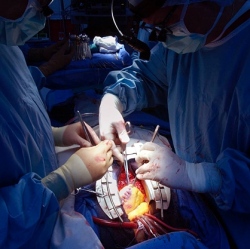
The largest clinical study ever conducted to date of patients with advanced leukemia found that 88 percent achieved complete remissions after being treated with genetically modified versions of their own immune cells. The results were published today in Science Translational Medicine.
"These extraordinary results demonstrate that cell therapy is a powerful treatment for patients who have exhausted all conventional therapies," said Michel Sadelain, MD, PhD, Director of the Center for Cell Engineering at Memorial Sloan Kettering and one of the study’s senior authors.
"Our initial findings have held up in a larger cohort of patients, and we are already looking at new clinical studies to advance this novel therapeutic approach in fighting cancer."
Adult B cell acute lymphoblastic leukemia (B-ALL), a type of blood cancer that develops in B cells, is difficult to treat because the majority of patients relapse. Patients with relapsed B-ALL have few treatment options; only 30 percent respond to salvage chemotherapy. Without a successful bone marrow transplant, few have any hope of long-term survival.
Cell-based, targeted immunotherapy is a new approach to treating cancer that harnesses the body’s own immune system to attack and kill cancerous cells. Unlike with a common virus such as the flu, our immune system does not recognize cancer cells as foreign and is therefore at a disadvantage in eradicating the disease.
For more than a decade, researchers at Memorial Sloan Kettering have been exploring ways to reengineer the body’s own T cells to recognize and attack cancer. In 2003, they were the first to report that T cells engineered to recognize the protein CD19, which is found on B cells, could be used to treat B cell cancers in mice.
In the current study, seven of the 16 patients (44 percent) were able to successfully undergo bone marrow transplantation, the standard of care and the only curative option for B-ALL patients, following treatment.
Three patients were ineligible due to failure to achieve a complete remission, three were ineligible due to preexisting medical conditions, two declined, and one is still being evaluated for a potential bone marrow transplant. Historically, only 5 percent of patients with relapsed B-ALL have been able to transition to bone marrow transplantation.
